Play (1998)
by Michael Frayn
Directed by Eric Tucker
October 1 – November 15, 2015
With Steven Barkhimer (Niels Bohr), Robert Najarian (Werner Heisenberg), Debra Wise (Margrethe Bohr), Han Nah Son (Musician)
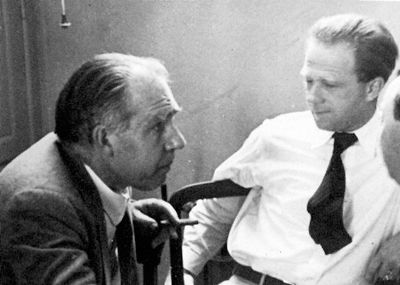
Werner Heisenberg, a leading theoretical physicist from Nazi Germany, comes to Copenhagen, Denmark, in 1941, to visit his mentor Niels Bohr, a Jew living in a country occupied by the Nazis the previous year.
But why? Is he there to probe Bohr and get some clues about helping to build a nuclear bomb? If not that, then what? The whole enterprise is very mysterious, and particularly mysterious because history had not given a clear answer.
Given the nature of quantum mechanics and the celebrate Uncertainty Principle to which Heisenberg lent his name, nothing playwright Michael Frayn touches in this fanciful improvisation on that meeting goes untouched or unmoved.
The whole effect is brilliantly stimulating and surprisingly moving, despite its simply raising a whole lot of questions. Frayn’s insistence that everything is suggested and nothing is answered, nor can be answered adds to the intellectual poignancy and fun.
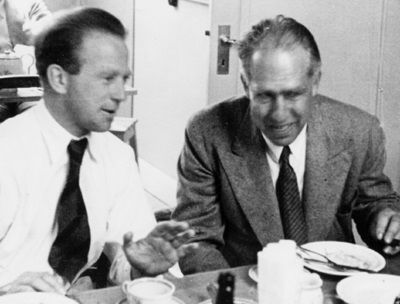
What a great production this is.
The stellar trio of actors who comprise this amazing piece of theatrical chamber music play with one another like virtuosi. Their deliveries are quick and pungent, like quanta, and carefully interspersed, like waves. They bounce off and reflect one another, the effect something like linguistic kinetics – stimulating but flowing, punctuated but articulate, thought-provoking, attention-grabbing and endlessly entertaining.
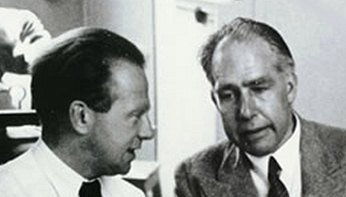
The three masterful actors – Steven Barkhimer (Niels Bohr), Debra Wise (Margarethe Bohr), and Robert Najarian (Werner Heisenberg) and so well suited to the task, and to one another’s rhythms, that the effect is exhilirating.
Unbelievable amounts of reference to actual physicists and to the physics itself are embedded in the text, and one might easily imagine anyone stumbling on the terrain within. There’s not a hint of that here, and the deliveries are so carefully folded into one another that, like great chamber music, they meld and fuse.
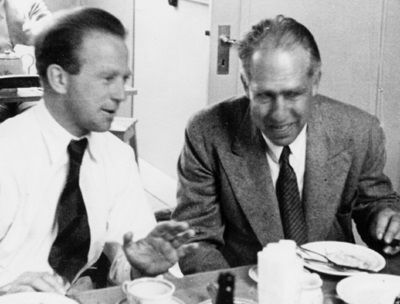
The portrayals are also interestingly different from one another, and the characters do successfully rise up through the complicated verbiage.
Bohr, insightful but older and more wizened, stands above and apart from Heisenberg, wiry, taut, tense and anguished in a kinetic and frenetic way. Between them, as a kind of in medias res commentator and referee, Margarethe offers wry comments, gestures quizzically, and generally adds a dose of humorous suspicion to the endlessly flaring dialogue between the two men. It’s a lovely invention by Frayn to add this role as a kind of third human dimension to the two intellectual luminaries and Debra Wise gives it both the verbal and non-verbal flair it deserves.
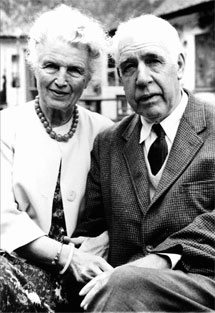
Robert Najarian, a movement expert as well as a superb actor, gives a physical twist to the role that works distinctively well. Not only does his speech more rapidly and staccato-like, but his body zips around with a kind of electron-beam ferocity.
Meanwhile Steven Barkhimer, a talented comic as well as dramatic actor, lends a noble hauteur to Bohr’s character while providing appropriately energetic responses when necessary. Though the comic’s subtle wink is apparent at intervals, Barkhimer retains Bohr’s gravitas consistently.
The production is beautifully done overall, with virtually no set. Only three chairs populate the stage.
Han Nah Son provides wonderful piano accompaniment throughout, reminding one that the mysterious Heisenberg was also a pianist and a lover of music as well as the architect of the philosophy of the unknowable.
How remarkable it is to walk away from a production which raises so many questions and answers none, but which does so elegantly and brilliantly that one comes away deeply satisfied, without really knowing why.
– BADMan
Leave a Reply